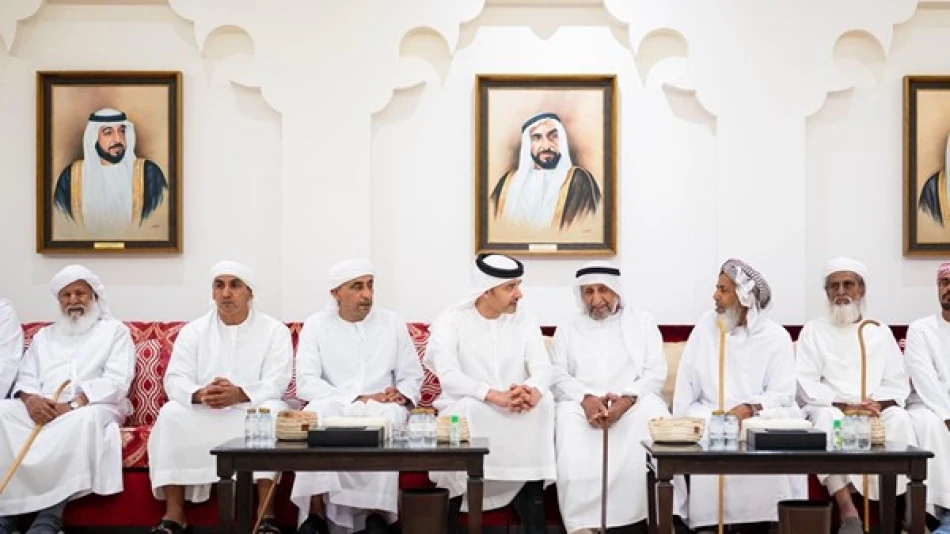
UAE's Sheikh Hazzaa bin Zayed Offers Condolences on Passing of Saeed Aamer Al Neyadi
UAE Royal Family Pays Respects as Sheikh Hazza bin Zayed Offers Condolences in Al Ain
Sheikh Hazza bin Zayed Al Nahyan, the Ruler's Representative in Al Ain region, personally attended funeral proceedings to offer condolences for the passing of Saeed Amer Hamad Al Neyadi, demonstrating the UAE leadership's continued commitment to maintaining close ties with local communities and honoring traditional customs of grief and support.
Traditional Leadership in Modern Times
During his visit to the condolence majlis at "Majlis Um Ghafa" in Al Ain, Sheikh Hazza expressed sincere condolences and comfort to the deceased's family. He offered prayers asking Allah to bestow His vast mercy upon the departed and grant him residence in the gardens of paradise, while inspiring patience and solace among his family and relatives.
The royal visit was accompanied by Sheikh Mohammed bin Hamdan bin Zayed Al Nahyan, reflecting the institutional nature of such community engagements within the UAE's governing structure.
Cultural Significance and Governance Model
This personal attendance underscores a distinctive aspect of UAE governance that sets it apart from many modern nation-states. The Al Nahyan family's direct participation in community mourning rituals represents more than ceremonial duty—it reflects a governing philosophy that maintains traditional Bedouin values of tribal solidarity within a contemporary political framework.
Al Ain's Strategic Importance
Al Ain holds particular significance as the birthplace of the UAE's founding father, Sheikh Zayed bin Sultan Al Nahyan. The region serves as a cultural heartland where traditional Emirati customs remain deeply embedded in daily life. Sheikh Hazza's role as the Ruler's Representative positions him as a crucial bridge between Abu Dhabi's central authority and the community-level needs of this historically important region.
Implications for Social Cohesion
Such personal engagements by senior royals serve multiple functions in UAE society. They reinforce the social contract between rulers and citizens, maintain cultural continuity amid rapid modernization, and demonstrate accessible leadership—a model that has contributed to the UAE's relative political stability compared to regional neighbors.
This approach contrasts sharply with more distant forms of governance seen elsewhere in the region, where leadership often remains removed from grassroots community experiences. The UAE's emphasis on maintaining these personal connections may explain part of its success in navigating social transformation while preserving traditional legitimacy structures.
Most Viewed News

 Layla Al Mansoori
Layla Al Mansoori






